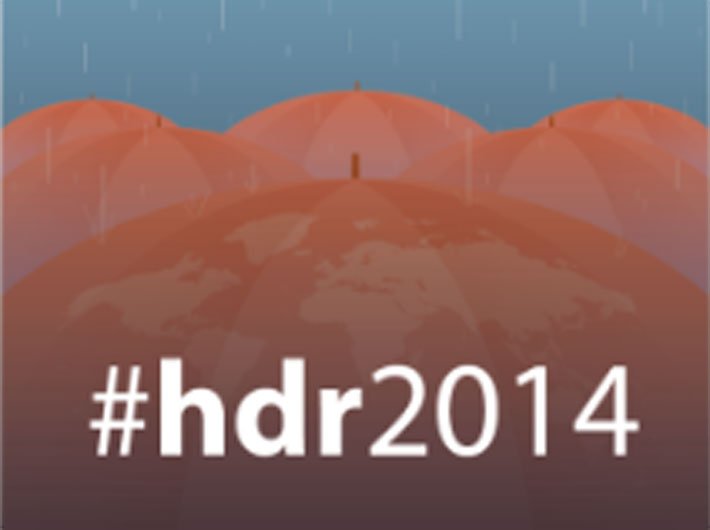UNDP report: Comprehensive social protection for India would cost only 4 percent of GDP and help accelerate the rate of growth
Staggering rates of poverty and high inequality threaten the gains in human development in South Asia. To protect these gains and ensure that all people benefit from the region’s growth, UNDP’s annual Human Development Report, released today in Tokyo, shows that the combination of social protection floors, universal basic services, full employment and programmes that specifically address discrimination and exclusion can help countries to irreversibly eradicate poverty.
The report: Sustaining Human Progress: Reducing Vulnerabilities and Building Resilience, shows that despite impressive global progress in improving human development, 2.2 billion people are poor or near-poor. Equally worrying, 80 percent of all people have no social protection net and 50 percent of all workers are in insecure employment, mostly in the informal sector, UNDP said in a release.
South Asia is home to the largest number of multi-dimensionally poor people, suffering from low incomes, poor education and inadequate health care. An estimated 800 million people fall into this category and an additional 270 million are near poor. The Report examines the causes of vulnerability and shows that people at different stages of life face different threats. People are at greater risk when they are very young, entering the labour market for the first time and when they are leaving as pensioners.
The report also shows that different categories of people are at high risk because of structural factors. Poor people are the most at risk, women suffer more than men, and the elderly are at particular risk. The disabled represent the largest category of vulnerable people in the world. People are more at risk if they have limited capabilities; if they have less education, poorer health, less income and if they are personally insecure.
In summarizing the Report’s analysis of vulnerability, UNDP administrator Helen Clark said today: “By addressing vulnerabilities, all people may share in development progress, and human development will become increasingly equitable and sustainable.”
The report recommends a number of concrete steps that countries can take to protect the progress they have made and accelerate gains. These include universalizing social protection and basic services and ensuring full employment. In addition, the Report argues that investing in programmes that address life-cycle and structural vulnerabilities and that help communities prepare for disasters will result in greater resilience to climate change, conflict, economic crisis and social unrest. The Report demonstrates that all of these actions are affordable and can be quickly implemented in all countries, regardless of the level of development they’ve currently achieved.
Lise Grande, United Nations resident coordinator and UNDP resident representative, says, “As countries debate a new global social contract, the six affordable steps being recommended in this report are pragmatic and can have immediate, decisive impact. Equally important, the Report makes the compelling argument that the time has come to reform global governance through a Brundtland type commission.”
In the case of India, the Report estimates that a comprehensive social protection net which would include old age and disability pensions, basic childcare benefits, universal access to essential health care, social assistance and 100 days of employment would cost only four percent of India’s GDP. Commenting on the Report, Ms. Grande said: “This is a social bargain by any measure.”
The report also singles out India’s commitment to disaster preparedness, showing how states have been able to minimize the impact of cyclones and other disasters by helping communities put in place mitigation measures.
As in previous years, the Report includes the Human Development Index (HDI) which ranks 187 countries and UN-recognized territories on their progress on human development. India is ranked 135. The Report includes four other indices. On the Gender Inequality Index, India ranks 127 out of 152 countries; on the Gender Development Index, 132 out of 148 and on the Inequality Adjusted HDI, India loses 28.6% in potential human development due to inequality.
For more information about the 2014 human development report, please refer to Sustaining Progress: Reducing Vulnerabilities and Building Resilience.
The report can also be found on UNDP India website
For information about the Human Development Index
